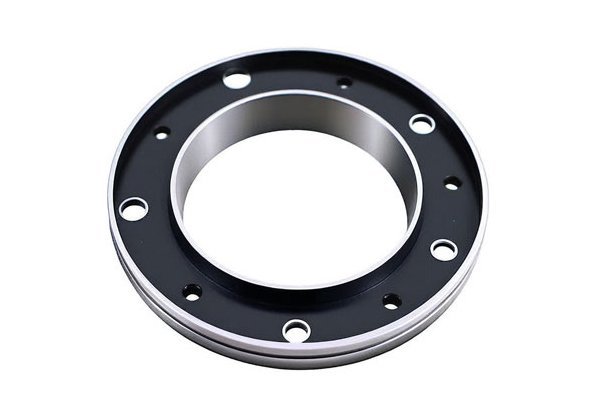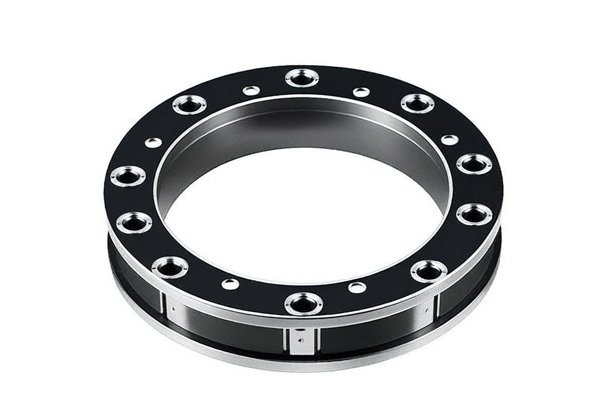Did you know that the skill level of CNC (Computer Numerical Control) machining operators can dramatically affect not just the efficiency of manufacturing processes, but also the precision and quality of the final product? A recent study revealed that more than 80% of machining defects arise from human error—especially when it comes to interpreting complex designs or calibrating machinery. This raises a vital question for manufacturers: how can they ensure that their operators are well-trained and capable of delivering the highest quality work?
In this comprehensive guide, we will explore the intricate relationship between the technical expertise of CNC machining operators and the overall quality of machining processes. From discussing key factors influencing operator performance to offering practical solutions for enhancing operator skills, this blog will serve as a valuable resource for manufacturers looking to improve their quality control processes.
Understanding CNC Machining and Its Importance
Before we delve into the specifics of operator technical levels, it’s essential to understand what CNC machining is and why it’s vital in today’s manufacturing landscape. CNC machining is a method used in the manufacturing sector that involves the use of computers to control machine tools like drills, lathes, mills, and more.
The significance of CNC machining lies in its ability to produce highly accurate and intricate parts at scale. Whether it’s automotive components, aerospace fittings, or medical equipment, the precision offered by CNC machining is unparalleled. However, the benefits of CNC machining can only be fully realized if the operators handling the machinery are skilled and knowledgeable.
The Technical Competence Spectrum
The technical level of CNC machining operators can generally be categorized into the following levels:
Understanding these levels is crucial for manufacturers aiming to enhance the precision and quality of their products. The more skilled the operator, the better their ability to minimize errors, select appropriate tools, and optimize settings for various materials.
The Impact of Operator Skills on Machining Quality
One of the most significant impacts of an operator’s technical level is on the accuracy and precision of the finished product. Precision in machining requires an in-depth understanding of tolerances, measurements, and material properties. An expert operator not only understands these aspects but can also intuitively make adjustments based on the machining situation.
For instance, a seasoned operator can adjust spindle speeds, feed rates, and tool selection based on varying material characteristics. This adaptability reduces errors and leads to a higher-quality final product, ultimately saving time and resources.
Operators frequently encounter various challenges, from mechanical failures to program errors. Highly skilled CNC machinists possess strong problem-solving skills, allowing them to quickly identify issues and implement solutions. They are adept at troubleshooting and can often fix problems on the spot, whereas less experienced operators may cause additional delays by failing to recognize or properly address the issue.
An operator’s background in quality control can significantly enhance product quality. Experienced CNC machinists know how to properly inspect parts during and after production to ensure they meet specifications. They also understand the importance of maintaining consistent quality throughout the manufacturing process, automatically adjusting settings as they monitor the ongoing production.
The efficiency of machining processes heavily relies on the operator’s technical skills. Skilled machinists can set up machines faster, understand the optimal conditions for different materials, and maintain steady production rates, which in turn minimizes downtime. This efficiency not only boosts output but also contributes to the overall profitability of a manufacturing operation.
Detailing Skills and Knowledge Areas
To further understand what constitutes a high technical level in CNC machining operators, let’s examine the specific skill sets and knowledge areas that enhance machining quality.
Operators must be familiar with various CNC programming languages such as G-code and M-code. Understanding how to write, modify, and troubleshoot these codes is crucial for ensuring that the machine performs correctly. The ability to read and interpret complex blueprints and CAD (Computer-Aided Design) files also falls under this category.
Operators should possess a thorough understanding of the various machines and tools they’ll be working with. Knowledge of tooling materials, geometry, and applications can help operators select the best tools for specific tasks. Familiarity with the machinery’s operational limits ensures that they can push the machine to its full potential without risking failure or product defects.

Different materials react differently under machining conditions. Expert operators need to recognize the properties of metals, plastics, and composites, including hardness, heat resistance, and machinability. This understanding equips them to adjust machining parameters appropriately, ensuring optimal quality.
Operators should be educated in metrology principles and inspection techniques. Understanding how to use various measuring tools—to ascertain tolerances and ensure high-quality standards—adds another layer of expertise. Skillful operators will regularly conduct checks throughout the machining process rather than leaving inspections until the end.
Knowledge of routine maintenance and the ability to perform minor repairs are essential. Operators who can quickly address machine wear-and-tear issues contribute to minimizing downtime and maintaining consistent quality.
Solutions to Enhance Operator Technical Levels
Now that we recognize the importance of the operator’s technical level in CNC machining quality, how can manufacturers improve the capabilities of their staff? Here are some practical solutions:
Investing in thorough training programs is crucial. These programs should cover programming, machine operation, tool selections, materials, and quality control:
Pairing less experienced operators with seasoned veterans can foster knowledge transfer and develop practical insights. On-the-job mentoring allows new operators to gain direct experience while learning real-time problem-solving strategies.
Encouraging operators to seek certification can add credibility to their skills and knowledge. Many industry-recognized programs exist that offer advanced certifications for CNC operators, further validating their competencies in the field.
Regular performance evaluations can help identify specific areas for improvement. Businesses can design assessments or quizzes that allow operators to demonstrate their knowledge and practical skills.
Create an organizational culture that emphasizes continuous improvement. Encourage operators to experiment with new machining techniques and share their findings. Embracing a growth mentality leads to increased innovation and productivity while enhancing overall quality.
By providing operators with updated machinery, simulation software, and high-quality tools, you can optimize their performance. Modern technologies allow operators to run simulations before actual machining, helping them optimize settings and diagnose potential pitfalls.
The technical level of CNC machining operators is crucial for ensuring high-quality machining processes. From precision and accuracy to problem-solving and efficiency, the operator’s skills have a direct impact on the outcome of machining operations. By investing in comprehensive training, fostering mentorship, encouraging certifications, and promoting continuous improvement, manufacturers can significantly enhance the competencies of their employees.
In an ever-evolving manufacturing landscape, understanding and continuously improving the technical levels of CNC machining operators will ensure a competitive edge. High-quality machined parts not only satisfy client requirements but can also establish an organization’s reputation for reliability and excellence.
To wrap up, let’s remember that investing in your operators is investing in the future of your manufacturing process. A skilled operator is not just another cog in the machine; they are the key to unlocking the full potential of your CNC machining capabilities. By prioritizing operator development, you’re ensuring the success and sustainability of your manufacturing operations in an increasingly demanding market.






